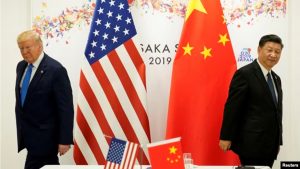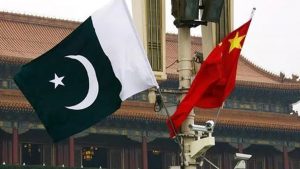
China’s Expanding Influence in Cambodia

China’s influence in Southeast Asia has surged in recent years, with Cambodia being one of the most significantly impacted nations. Chinese involvement spans multiple spheres, including the economy, politics, military cooperation, and cultural dynamics. While Cambodia remains sovereign, many experts argue that its growing reliance on China has created a relationship in which Beijing wields substantial control. Through economic dependence, political alliances, military engagement, and sociocultural penetration, China has effectively embedded itself in Cambodia’s core structures, raising concerns over the long-term implications for Cambodian autonomy.
One of the most crucial mechanisms of Chinese influence is its economic footprint, particularly through the Belt and Road Initiative (BRI), which has made China Cambodia’s largest foreign investor. Billions of dollars have poured into infrastructure projects, including roads, bridges, ports, and real estate ventures. However, these investments often come with significant conditions that deepen Cambodia’s economic reliance on China. A notable example is the Dara Sakor project, a 99-year land lease covering 20% of Cambodia’s coastline, granted to Union Development Group, a Chinese company. Originally promoted as a tourism and real estate venture, the project has raised suspicions about potential military use. Similarly, Chinese investments have transformed the deep-sea port in Sihanoukville into an economic enclave dominated by Chinese businesses, marginalizing local Cambodians.
Cambodia’s growing debt to China further tightens Beijing’s economic grip. Estimates suggest that over 35% of Cambodia’s external debt is owed to China, limiting its financial independence and giving Beijing leverage over key policy decisions. This economic entanglement extends into the political sphere, where Cambodia has consistently aligned itself with China’s foreign policy objectives. Former Prime Minister Hun Sen, a longstanding ally of Beijing, frequently advocated for Chinese interests on the global stage. Cambodia’s support for China in regional disputes, such as blocking ASEAN statements condemning Beijing’s territorial claims in the South China Sea, exemplifies this dynamic.
China’s political backing was also evident in Cambodia’s 2017 crackdown on the opposition Cambodia National Rescue Party (CNRP). While Western nations condemned Hun Sen’s move to dissolve the opposition, China provided diplomatic and financial support, ensuring his continued rule. As the West imposed sanctions over human rights violations, China stepped in with additional loans and investments, reinforcing Hun Sen’s grip on power and increasing Beijing’s sway. Furthermore, China’s influence extends into Cambodia’s law enforcement and governance. A joint security initiative launched in 2019 ostensibly aimed at tackling cybercrime has reportedly been used to target Chinese dissidents and critics of Beijing residing in Cambodia, demonstrating Phnom Penh’s willingness to prioritize Chinese interests over its own sovereignty.
Military cooperation between the two nations is another critical area of concern. The most striking example is the Ream Naval Base, where China has been secretly funding upgrades, raising fears that Beijing aims to establish its first foreign military base in Southeast Asia. Despite official Cambodian denials, satellite images and investigative reports suggest Chinese involvement in designing and constructing the base. Such a development would give China a strategic foothold in the region, potentially compromising Cambodia’s sovereignty and alarming neighboring countries.
Beyond politics, economics, and military affairs, Chinese influence is deeply ingrained in Cambodia’s social and cultural fabric. The rapid influx of Chinese nationals, particularly in cities like Sihanoukville, has led to tensions with local communities. Entire districts have transformed into Chinese-dominated business zones, sidelining Cambodian enterprises. This shift has also been accompanied by a rise in crime, primarily linked to Chinese-run casinos and illicit activities. Meanwhile, Chinese culture and language are becoming more prominent, with businesses, schools, and media increasingly catering to Chinese-speaking residents. Pro-China narratives dominate state-controlled media, while critical voices have been systematically silenced, shaping public perception in Beijing’s favor.
Cambodia’s trajectory serves as a cautionary tale for other nations heavily engaging with China. Historical precedents, such as Beijing’s support for the Khmer Rouge in the 1970s, highlight the risks of over-reliance on Chinese backing. Today, countries accepting large-scale Chinese investments must be vigilant against debt dependency, political interference, and erosion of sovereignty. Diversifying economic partnerships, strengthening domestic industries, and ensuring transparency in foreign agreements are crucial to maintaining national autonomy. Without these safeguards, the consequences of unchecked Chinese influence could prove irreversible.
Harsh Pandey is a PhD Candidate at the School of International Studies, JNU, New Delhi.













Comments